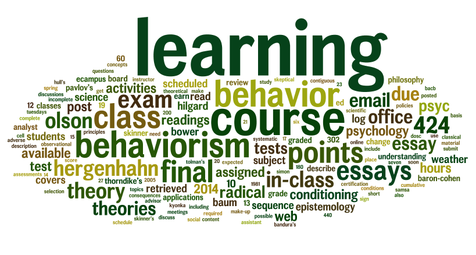WVU Psychology courses
PSYC 202. Research Methods in Psychology
Psychology 202 is a lecture/laboratory course that introduces students to basic research techniques in Psychology. This course provides the necessary background and tools to critically evaluate published psychological research and to begin developing research ideas. Students learn about psychological methods in lectures and apply this information in the laboratory, where they design experiments, collect and analyze data, review research literature, and prepare and critique APA-style manuscript sections.
PSYC 424. Learning and Behavior Theory
Psychology 424 is designed to deepen and broaden students’ understanding of scientific principles that underlie behavior. In class meetings, we discuss classic and contemporary theories of learning and their applications. Enrolled students can find more information on eCampus.
PSYC 426/BIOL 337. Physiological Psychology
Introductory course in behavioural neuroscience/physiological psychology.
PSYC 495, 498. Independent study, Capstone and Honors research
Undergraduate research assistants in the QAB lab collect behavioral data from human and pigeon subjects and work collaboratively with graduate students on the design, analysis and presentation of research projects. If you are interested in working in the lab and can make a 2-semester commitment, click on over to the prospective research students page for more information on becoming involved.
PSYC 511. Research Methods and Data Analysis I
The primary objective of Psychology 511 is to introduce doctoral students to data analysis and statistical inference in psychological research. The focus is on univariate analysis of group data (that is, primarily t-tests, various flavors of ANOVA and their nonparametric equivalents) and includes discussion of assumptions, power, effect size, planned comparisons and post hoc analyses necessary for a critical appraisal of results.
PSYC 531. Experimental Analysis of Behavior
Research and theory in the psychology of learning. Assessment of traditional and behavior-analytic approaches to the study of positive reinforcement, aversive control, and stimulus control. Includes laboratory work with animals.
PSYC 733. Stimulus Control and Memory
A
critical review of basic research and theory in choice, discrimination
learning, stimulus generalization, and memory. For more information, including student-project podcasts, click here.
PSYC 731. Research Issues in Behavior Analysis
Previous topics in this seminar have included instrumentation and behavior analysis of gambling.
PSYC 736. Advanced Experimental Analysis of Behavior: Topics in the quantitative analysis of behavior
How are models built? First, I cannot overemphasize that such activity has no algorithmic procedure or recipe one simply follows and a fine model emerges – like a roast chicken from the oven… [Model building] is a skill, and as with any skill worthy of the name, it must be acquired carefully and properly, and practiced over and over. One typically learns the rudiments of various mathematics and science courses with many examples and problems. Given some background, you’ll ultimately learn specific techniques from the very models of modern major modelers… by reading and working with examples of significant models in the literature. M. Jackson Marr, 2004
|
This advanced course explores model development and model comparison within the context of topics in the quantitative analysis of behavior. Topics may include theories of learning, timing and conditioned reinforcement.







